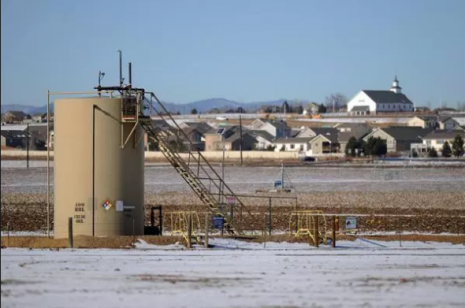The Idaho Department of Lands (IDL) recently decided to keep a 300-feet minimum oil and gas well setback from occupied dwellings. The decision was made despite testimony from Idaho Organization of Resource Council (IORC) and allies asking for a 500-feet minimum.
IORC members commented on the weak negotiating position of a split estate surface owner. “You are subservient to the mineral estate,” said member Mary Sue Roach. Other concerns included exposure to toxic chemicals, loss of property value, and diminished quality of life from odor, noise, dust, light, spills, and traffic.
Well setback requirements in WORC states
In the west, minimum setback distances vary from state to state, but the majority of states enforce a 500 foot minimum setback. Montana has no minimum setback requirement.
Colorado: 500 feet from occupied dwellings, 1000 feet from high occupancy buildings (i.e. apartments, retirement homes, and hospitals)
Idaho: 300 feet
Montana: No minimum setback
North Dakota: 500 feet, with placement of equipment and storage tanks at the side of the well furthest from the occupied dwelling
Wyoming: 500 feet
Local Control Remains in Place
At the IDL hearing former U.S. Senator Larry Craig and current oil and gas lobbyist argued in favor of the 300-foot setback, but, interestingly, Craig said that he personally would not want to live 300 feet from a gas processing facility. He argued that counties can set the minimum setback distances through zoning, but that counties need to ensure that the setback distance does not inhibit drilling activity.
The department did not adopt any rules prohibiting local zoning bodies from setting the setback, which means the fight for increased setbacks is at the local level in Idaho. The Idaho Organization of Resource Councils and its allies are now shifting their focus to working on the local level.
This decision contrasts with a recent Colorado Supreme Court ruling against the ability of cities and counties to use local control to regulate oil and gas development.
Read more stories about oil and gas here.
Read more:
Colorado Oil and Gas Activists Hopeful, Despite Ballot Defeat
Fracking Cover-Up Continues Groundwater Contamination Disaster in Pavillion, Wyoming
WORC Files Injunction to Stop Secret Royalty Policy Committee Meetings


